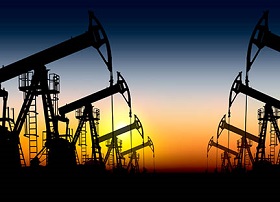Fossil fuel
Fossil fuels are types of non-renewable fuels formed by over millions of years by the anaerobic decomposition of organisms buried beneath or within soil and rock. They are considered to be non-renewable because the rate at which they are currently consumed is far in excess of the rate at which they are naturally replaced, and so they are being rapidly depleted.
Fossil fuels include:
Fossil fuels, contain energy that originated in photosynthesis. They can be burnt in air, or oxygen, to provide heat, which can be used directly, or converted into energy such as electricity. The Industrial Revolution drastically increased the consumption of fossil fuels to the contemporaneous point where levels are widely considered to be unsustainable, hence the drive for large-scale up-take of renewable energy sources.
Types of fossil fuel extraction, such as shale gas, have intensified the debate over whether or not modern and intensive methods should be employed for the further exploitation of non-renewable energy sources.
Burning fossil fuels produces carbon dioxide (and other pollutants) which is a greenhouse gas and so contributes to climate change.
NB Climate Emergency Design Guide: How new buildings can meet UK climate change targets, published by the London Energy Transformation Initiative (LETI) in January 2020, defines a fossil fuel as: 'A natural fuel such as petroleum, coal or gas, formed in the geological past from the remains of living organisms. The burning of fossil fuels by humans is the largest source of emissions of carbon dioxide, which is one of the greenhouse gases that allows radiative forcing and contributes to global warming.'
[edit] Related articles on Designing Buildings Wiki
- Biomass.
- Carbon capture and storage.
- Coal usage for electricity generation to end by October 2024.
- Electric vehicles.
- Energy.
- Liquefied petroleum gas (LPG).
- Mains gas.
- Natural gas.
- Not a choice between renewables and nuclear - we need both.
- Oil - a global perspective.
- Peak oil.
- Phosphorescent building materials.
- Power generation.
- Renewable energy.
- Shale gas.
- Types of fuel.
- Wood pellet mill basics.
Featured articles and news
Gregor Harvie argues that AI is state-sanctioned theft of IP.
Heat pumps, vehicle chargers and heating appliances must be sold with smart functionality.
Experimental AI housing target help for councils
Experimental AI could help councils meet housing targets by digitising records.
New-style degrees set for reformed ARB accreditation
Following the ARB Tomorrow's Architects competency outcomes for Architects.
BSRIA Occupant Wellbeing survey BOW
Occupant satisfaction and wellbeing tool inc. physical environment, indoor facilities, functionality and accessibility.
Preserving, waterproofing and decorating buildings.
Many resources for visitors aswell as new features for members.
Using technology to empower communities
The Community data platform; capturing the DNA of a place and fostering participation, for better design.
Heat pump and wind turbine sound calculations for PDRs
MCS publish updated sound calculation standards for permitted development installations.
Homes England creates largest housing-led site in the North
Successful, 34 hectare land acquisition with the residential allocation now completed.
Scottish apprenticeship training proposals
General support although better accountability and transparency is sought.
The history of building regulations
A story of belated action in response to crisis.
Moisture, fire safety and emerging trends in living walls
How wet is your wall?
Current policy explained and newly published consultation by the UK and Welsh Governments.
British architecture 1919–39. Book review.
Conservation of listed prefabs in Moseley.
Energy industry calls for urgent reform.
























